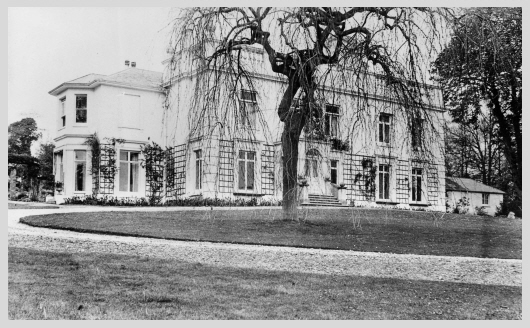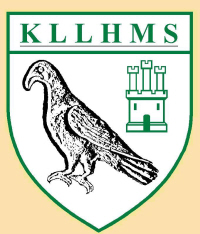A review of the book “RISING ’44" and the Barnes Lodge connection.
No, this isn’t the story of someone approaching Middle Age! The ’44 referred to in the title of a book by Norman Davies is actually 1944 and the “Rising” would be now referred to as “Uprising” for it is used here in the sense of an insurrection or revolt.
Unless you are Polish, or are well versed in the events of the Second World War, the title would mean little, but a much better clue to the book’s content can be found in its subtitle ‘The Battle for Warsaw’. It is indeed the story of the insurrection, which took place in Warsaw, the capital of Poland, towards the end of the war. It was at that time that many Polish patriots, having been engaged in the underground resistance movement for five years, came out into the open in an attempt to drive out the hated Nazi occupiers of their country.
But what has all this got to do with Kings Langley you may ask. Well the link can be found at Barnes Lodge, once an imposing country house here in the village, but sadly no longer with us since it was demolished in 1975/6 (the present Barnes Lodge is in fact built on the site of the stables of the old house).
It was at Barnes Lodge that the story begins in the summer of 1944. Here, largely unknown to anyone in the village apart from, perhaps, the local policeman, 127 people were engaged in “War Work”. The building had been requisitioned soon after the outbreak of war and its seclusion and convenience meant that it was ideally situated for a listening and receiving station. In fact it was ‘station number eight’ in a chain of 95 scattered throughout Europe. The book informs us that it was linked by a 56 strand cable to transmitters a couple of miles away at Chipperfield House and Tower Hill and by over 30 miles of landline to the 6th Bureau of Army Command in London SW1.

Barnes Lodge, demolished in 1975/6 (KISMS 91.022)
The building had no immediate neighbours, though it was less than a mile from the main railway line, and only 30 minutes journey time to London. It was surrounded by pine trees or thickets of hawthorn, alder and hazel and the winding drive up the hill gave no clue to its final destination. As the book indicates, “the iron gates, which stood back from the main road at the bottom, were wreathed in shrubbery, giving no hint of the guardhouse and the steel-net fence lurking beyond. A discreet notice read ‘Private’. Motorists driving past the village of Kings Langley on the A41 were unlikely to give a second thought as they negotiated the bend and the railway arch just after the drive.”
The opening chapter of the story goes on to mention several notable features of the local landscape at the time - the mock-Tudor barns of the model Ovaltine Egg Farm, the platform at Kings Langley halt, the 46 radio towers at Chipperfield, and villagers drinking in the ‘isolated’ Eagle pub 200 yards from the gates to the Lodge, or at Ye Olde Red Lion beside the railway arch - before going on to describe in great detail the 63 days of the uprising.
Of particular interest to historians is the political intrigue behind the whole event and the relationship between the “Big Three” powers, Britain, the USA, and Russia. All three were fighting, apparently in unison, against the spread of the third Reich, but there was also an underlying fear that Stalin had other fish to fry than merely stopping the threat of Nazi influence.
Stalin was in fact the villain in the story for, having pushed the Germans back to the outskirts of Warsaw, giving the underground fighters the belief that liberation was at hand, he then condemned the “Rising” as a ‘criminal adventure’ and refused to co-operate. His troops watched from across the river while the freedom fighters fought a fruitless campaign against the strength of the SS and the Wehrmacht. Poland’s Western allies expressed regret at this turn of events but did little to change the situation for fear of upsetting the Soviet leader.
So the sacrifice of the brave Polish resistance was in vain and Hitler’s orders to have the city, and its inhabitants, destroyed were carried out to the full.
The whole story is told in great detail, using the memoirs of many survivors to complement the main narrative, and with a true historian’s attention to accuracy and understanding of the issues involved. Altogether a most interesting and thought provoking read, with the added spice of a little local flavour from the events taking place up at Barnes Lodge.
(Rising ’44 - ‘The Battle for Warsaw’ by Norman Davies (1994) is published by Pan, p/b £9.99 776 pages. ISBN-10: 0330488635 ISBN-13: 978-0330488631
Much of the research for the book was undertaken by Roger Moorhouse who contacted the Society and visited our archivists one Monday morning. He borrowed a photograph of Barnes Lodge from our files and this has been reproduced in the book - with the Society getting an appropriate credit!).
(Note. For further information about the history of Barnes Lodge please see Kings Langley: A Hertfordshire Village, p 40.)
Adapted from an article by Frank Davies previously published in the Kings Langley History & Museum Society 2004 Newsletter No. 42.
